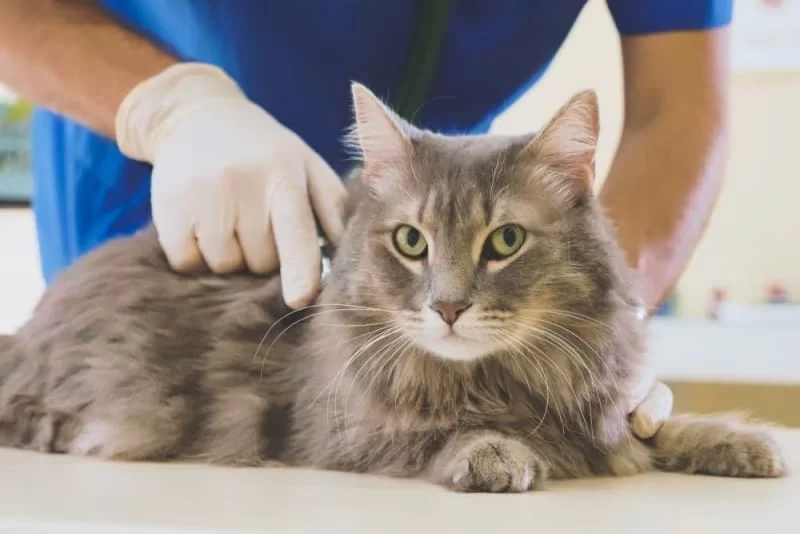The Importance of Routine Blood Work for Pets: Ensuring Their Health and Well-being
As a pet owner, ensuring your furry friend's health is always a top priority. While we often focus on regular check-ups, vaccinations, and providing them with proper food and exercise, there’s one vital aspect that often gets overlooked—routine blood work. Blood tests might not seem necessary for every pet, but they are one of the most important tools in early disease detection and can provide a clearer picture of your pet's overall health. In this article, I’ll share my experience and explain why routine blood work is a critical part of maintaining your pet’s health.
1. What is Routine Blood Work for Pets?
Routine blood work involves a series of tests performed on a sample of your pet's blood. These tests help detect potential health issues, monitor the function of vital organs, and assess the overall state of your pet’s immune system. Blood tests typically measure components such as red blood cells, white blood cells, platelets, glucose levels, liver and kidney function, and electrolyte balance. All of these elements provide valuable insights into the functioning of your pet’s body, and catching any abnormalities early can significantly improve treatment outcomes.
2. Early Disease Detection
One of the biggest advantages of routine blood work is the early detection of potential health problems. Many pets can appear perfectly healthy, but underlying conditions such as kidney disease, liver issues, or even cancer might not show visible symptoms until they’ve reached an advanced stage. Through regular blood tests, these conditions can be detected long before they become life-threatening. I’ll never forget when my dog, Max, underwent a routine blood test at his yearly vet appointment. To our surprise, his liver enzymes were elevated, indicating early signs of liver disease. Thanks to the test, we were able to begin treatment early and avoid a more serious situation later on.
3. Monitoring Chronic Conditions
If your pet has been diagnosed with a chronic condition such as diabetes or hypothyroidism, routine blood work is essential for monitoring their progress and adjusting treatment plans accordingly. My cat, Felix, was diagnosed with diabetes a few years ago. After his diagnosis, we started regular blood work to monitor his glucose levels, which helped us fine-tune his insulin dosage. This regular monitoring not only keeps his condition under control but also helps us prevent complications from developing in the future.
4. Pre-Surgical Assessments
Before your pet undergoes any surgical procedure, it’s important to ensure they’re in good overall health. Routine blood work provides critical data that can help your vet assess your pet’s ability to handle anesthesia and surgery. For example, low red blood cell counts might indicate anemia, while liver or kidney issues could affect the way your pet metabolizes medications. A blood test can reveal these issues early, ensuring that your pet’s surgery goes smoothly and that there are no unexpected complications during the procedure.
5. Detecting Dehydration or Infection
Sometimes, it’s hard to tell if your pet is dehydrated or battling an infection just by looking at them. Routine blood tests can help identify dehydration, infection, or other inflammatory conditions that might not be immediately apparent. For instance, my dog, Bella, had been acting a bit lethargic and wasn’t eating as much as usual. At first, we thought it was just a minor issue, but a blood test revealed that she was battling a bacterial infection. Thanks to the test, we caught it early, and Bella made a full recovery within days.
6. Assessing Organ Function
Our pets can’t tell us when they’re feeling unwell, so we rely on blood tests to monitor the health of their vital organs. The liver and kidneys, in particular, play crucial roles in filtering toxins and maintaining the balance of fluids and electrolytes in the body. If these organs aren’t functioning properly, serious health issues can arise. Routine blood work can provide early warning signs of kidney disease, liver failure, and other organ-related problems, allowing for prompt intervention and treatment.
7. Tailoring Your Pet’s Diet and Treatment Plan
Blood tests can also help tailor your pet's diet and treatment plans more effectively. If your pet has certain deficiencies, allergies, or health conditions, blood work can help identify the cause, allowing your vet to recommend the best diet or medications. For example, if your pet has low iron levels, their diet might need to be adjusted to include more iron-rich foods or supplements. Similarly, blood tests can detect if your pet’s thyroid is underactive or overactive, helping to refine their treatment plan to ensure optimal health.
8. The Emotional and Financial Benefits
As a pet parent, it’s incredibly reassuring to know that you’re actively monitoring your pet’s health. By catching problems early, you can often avoid expensive emergency care or complicated treatments down the line. Preventative measures like routine blood work can save you significant amounts of money and stress. It also gives you peace of mind knowing that you’re providing the best care possible for your furry friend.
9. How Often Should Routine Blood Work Be Done?
The frequency of blood work depends on your pet’s age, breed, and health status. Generally, healthy adult pets should have blood work done at least once a year during their annual check-up. Older pets or those with chronic conditions may require more frequent testing to monitor their health. Always consult with your vet about the best schedule for your pet's needs. It’s always better to be proactive and stay ahead of potential issues.
In conclusion, routine blood work is a simple yet effective way to monitor and maintain your pet’s health. From early disease detection to assessing organ function and customizing treatment plans, blood tests are an essential part of keeping your pet happy and healthy for years to come. Don’t wait until something goes wrong—schedule a routine blood test for your pet today and give them the care they deserve!












